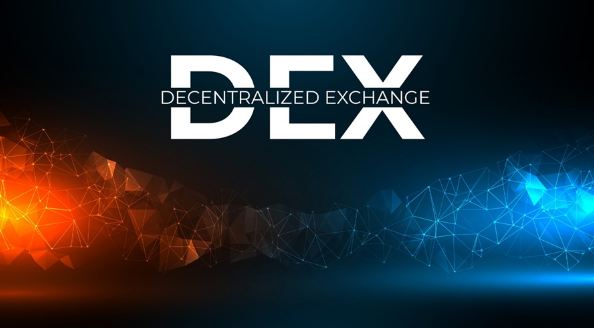DEX is a peer-to-peer marketplace where users may trade cryptocurrencies without an intermediary. DEX exchange replaces middlemen (banks, brokers, payment processors, etc.) with blockchain-based smart contracts that allow asset exchange.
Unlike typical financial transactions, which are opaque and operate via middlemen, DEXs give total transparency into money flow and exchange procedures. DEXs lessen counterparty risk and systemic centralization problems since user money doesn’t flow via a third party’s cryptocurrency wallet while trading.
DEXs are a cornerstone of decentralized finance (DeFi) and a “money LEGO” on which more complex financial products may be constructed.
Decentralized exchanges how?
DEX designs provide varied feature-sets, scalability, and decentralization advantages and trade-offs. Order book DEXs and automated market makers are prevalent (AMMs). DEX aggregators scan numerous on-chain DEXs to determine the best pricing or lowest gas cost for a user’s transaction.
Using blockchain technology and immutable smart contracts gives DEXs great determinism. DEXs perform deals using smart contracts and on-chain transactions, unlike centralized exchanges (CEXs) like Coinbase or Binance. DEXs enable users to keep their cash in self-hosted wallets while trading.
DEX users pay network and trading costs. Trading fees are collected by the underlying protocol, its liquidity providers, token holders, or a mix of these organizations as stipulated by the protocol design.
DEX Risks
Strong execution guarantees, enhanced transparency, and permissionless access have democratized trade and liquidity. DEXs entail hazards such as:
- Smart contract risk—Blockchains are safe for financial transactions. Smart contract code quality depends on the team’s expertise and experience. DEX users might lose cash due to smart contract errors, hackers, vulnerabilities, and exploits. Developers may reduce this risk via security audits, peer-reviewed code, and solid testing techniques.
- Some DEX markets have inadequate liquidity, causing to slippage and a bad user experience. Due to the network effects of liquidity (high liquidity draws more liquidity, low liquidity attracts less), considerable trading activity is still undertaken on controlled exchanges, leading to reduced liquidity on DEX trading pairs.
- Due to the public nature of blockchain transactions, arbitrageurs or MEV bots may front-run DEX trades to steal from unknowing users. These bots aim to exploit market inefficiencies by paying higher transaction fees and optimizing network latency to trade on DEX.
- While many DEXs strive to increase decentralization and censorship resistance, centralization may occur. The DEX’s matching engine is located on centralized servers, the development team has administrative access to smart contracts, and low-quality token bridging technology is used.
- Using a DEX may be excessively costly or impossible if the network faces congestion or unavailability, leaving users vulnerable to market swings.
- Risk token. As many DEXs allow anybody to build a market for any token, the danger of purchasing low-quality or malicious tokens is greater than on centralized exchanges. DEX users should avoid early-stage projects.
Some users may find possessing their private keys frightening. Full ownership over one’s assets is one of Web3’s key features, however many users may prefer a third party to hold their assets. Good security and key management methods may help more people keep complete control over their assets while using an open-source financial services ecosystem.


